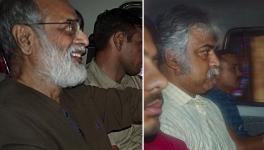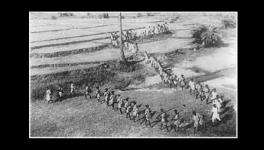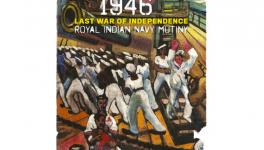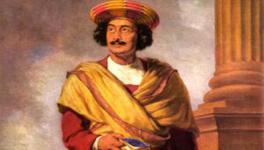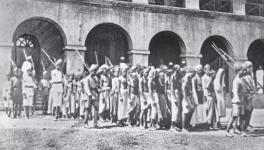Creating Communal Rhetoric From Moplah Rebellion
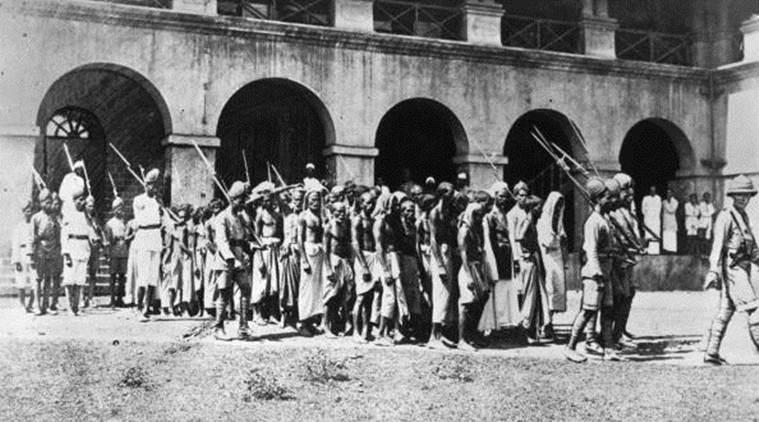
The Malabar rebellion, also known popularly as the Moplah rebellion, was an armed revolt staged by the Mappila Muslims of Kerala against the British authorities and their Hindu allies in 1921. (Wikimedia Commons)
For the last few months, Kerala has been in the news for all the right reasons. It led the charge to curtail the impact of Covid-19 with humane, competent and effective measures. Its strategies ensured the best possible results with minimum suffering to the people. Kerala is one state where the public health is more organised and its services are accessible to most residents. It is also the state where the forces representing nationalism in the name of religion have not been able to get substantial electoral success. This is despite the large network of RSS shakhas and their consistent efforts to communalise issues, such as the issue of women’s entry into Sabarimala temple.
The forthcoming centenary of the Malabar rebellion, also known as the Mappila Rebellion, may provide another occasion to the communal forces to polarise society. Recently, some film directors have declared film projects on the life of Variyan Kunnathu Kunjahammed Haji, a leader of the rebellion who was executed by the British. “Vaariyamkunnan”, the movie announced by film-maker Aashiq Abu, is one of them. He plans to highlight Haji’s struggles around the issues of the peasantry, who were suffering severe oppression at the hands of the landlords and their minions. These landlords or “Janmis” were mostly upper-caste Hindus who were well protected by the British. Interestingly, the landlords were Hindus and the peasants were Muslims.
As we know, Islam first arrived on India’s Malabar coast through Arab traders. Many people who were victims of the Varna-caste system took to Islam during this interaction. As a symbol of this initial entry of Islam in India, we cherish the Cheraman Juma mosque, the first in India, located in Methala in Thrissur district of Kerala and believed to be dated 629 AD.
As soon as the film project was announced, communal elements in the form of a “Hindu Aikya Vedi” launched a campaign program to oppose the film-maker’s goal to “glorify” Haji along with other leaders who had been at the forefront of the Mappila rebellion, which we also know as the Moplah uprising. This rebellion had broken out in August 1921 in the southern region of Malabar and Haji was captured in January 1922. The rebellion was ruthlessly suppressed by the British. Though the main leadership of the rebellion had only seen it as a route to redress agrarian grievances, because of a few marginal elements, the Hindu versus Muslim binary had crept into it. [As per the Arya Samaj, quoted in Sumit Sarkar’s book on Modern India, nearly 2,500 Hindus were converted and 600 were killed.]
The rebellion occurred at a time when the movement for restoration of Khilafat in Turkey was on. Under the leadership of Gandhi, the Indian National Congress had supported the Khilafat movement, with the primary aim to ensure that Muslims also become part of the anti-British movement. During the rebellion, Haji led many attacks on those who had been loyal to the British, including Muslims. This rebellion gave some rabid fundamentalists the opportunity to present it as an anti-Hindu rebellion. The truth is that many non-Muslims participated in the rebellion and many Muslims in it did not support the anti-Hindu stance.
Peasant rebellions have a long history in the Malabar region. As the Janmi landlords backed by the police, law courts and revenue officials became more oppressive of the subordinate classes, the Moplah peasantry started to revolt. There was a series of uprisings, with the first in 1836 and 22 others between 1836 and 1854, of which 1841 and 1849 saw very serious rebellions.
Sociologist DN Dhanagare’s summary of the rebellion is very apt. According to him it was due to “gross neglect of the basic tenurial security, the deterioration of landlord-tenant relations and the political alienation of the poor peasantry”. He observes that the basic movement around tenancy issues became intermixed with the Khilafat and the non-cooperation movements.
Khilafat, launched in 1919, was instrumental in providing a new stimulus to the grievances of Muslim peasants. As Khilafat created a pan-Islamic sentiment, local grievances intertwined with global concerns, which renewed its vigour. The collapse of Khilafat led to feelings of utter frustration and intensified the violence.
In this complex scenario, the Haji, on whom Aashiq Abu is planning to make his film, Vaariyamkunnan, was firmly against giving the rebellion a religious colour, while a small section disagreed, mainly because the Janmis were primarily upper caste Hindus. Through all this, the British rule remained a great protector of the severe exploitation by the landlord class.
The Malabar rebellion did to an extent create intercommunity strife, but it was unintended and nowhere on the agenda of leaders of the rebellion such as Haji. It is the British who sought to further their “divide and rule” policy by presenting the rebellion as an attack by the Muslims against the Hindus.
The Hindu communal forces have been trying to push the narrative further afield by calling the Malabar rebellion a genocide of Hindus. The British ruthlessly killed nearly 10,000 Muslim participants in the rebellion and a larger number were exiled to the Andaman island. For all these reasons, a proper evaluation of this primarily peasant rebellion is needed. That alone will help us see social phenomenon against a brighter light and on the wide canvas on which they unfold.
The author is a social activist and commentator. The views are personal.
Get the latest reports & analysis with people's perspective on Protests, movements & deep analytical videos, discussions of the current affairs in your Telegram app. Subscribe to NewsClick's Telegram channel & get Real-Time updates on stories, as they get published on our website.









